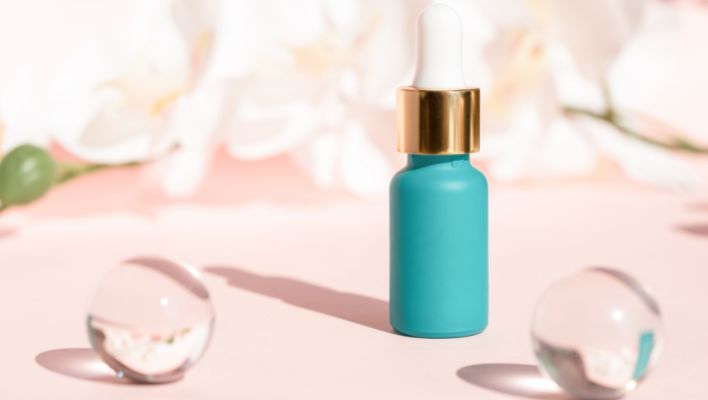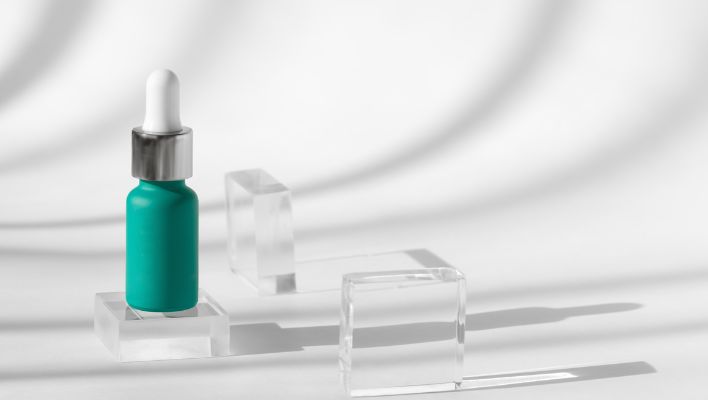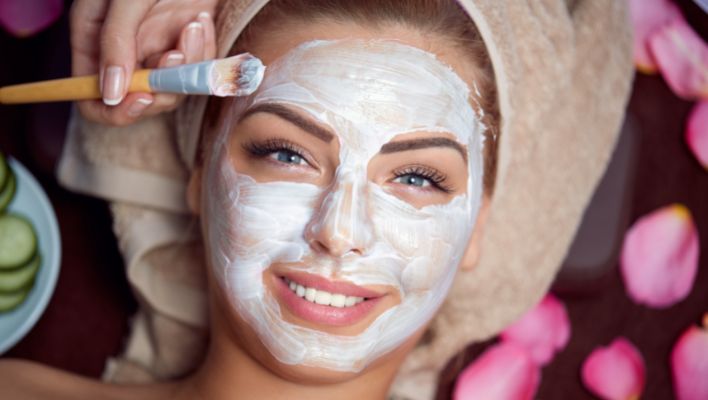Peptides are small molecules which are composed of two or more amino acids that are linked together by a peptide bond. They are much more than the latest skincare phenomenon and play an important role in skin health and can be used in a variety of skin care regimen. In this article, we will briefly discuss how to use peptides in skin care to effectively improve health, why they’re so good for your skin and how to get more of them.

Factors To Consider Regarding How To Use Peptides In Skin Care
A lot of factors to consider regarding how to use peptides in skin care. Some of these are Carrier peptides, Neurotransmitter peptides, and Signal peptides. Besides them, others are Penetration studies and the use of retinol in conjunction with peptides.
Signal peptides

When it comes to any skin care regimen, it’s crucial to understand how peptides work. These short chains of amino acids act as messengers for the body, triggering cellular processes that promote healing and regeneration. They also smooth wrinkles and firm the skin.
Peptides are available in several forms and have many different applications. Some are enzyme inhibitors that slow down the natural breakdown of collagen. In contrast, others are neurotransmitter peptides that affect skin cell function.
They can be added to moisturizers, serums, and eye creams. They are known to help improve the skin’s permeability, increase water solubility, and enhance cell receptors’ interaction. In addition, they are effective in fighting against photoaging.
Carrier peptides

Carrier peptides in skin care products are used to improve skin health. They effectively reduce wrinkles, improve firmness and moisture levels, and help heal wounds.
Peptides are fragments of protein. These protein chains can be positively or negatively charged. Positively charged peptides are often above the isoelectric point, while negatively charged peptides are below the isoelectric threshold.
The peptides can be classified into four groups: structural peptides, carrier peptides, enzyme inhibitor peptides, and signal peptides. Each peptide has its unique role in the skin.
Carrier peptides: These peptides are small molecules that facilitate the delivery of trace minerals to the skin. In addition, they help with collagen production and elastin production.
Enzyme inhibitor peptides
Enzyme inhibitor peptides are a group of peptides that effectively slow the breakdown of collagen and elastin. These peptides can be found in many skin care products.
The amino acid composition of peptides varies depending on the source. They can contain two to 10 amino acids. Mostly, these amino acids are bonded with a carboxyl group, but they can also be positively or negatively charged.
There are four main types of peptides: Enzyme inhibitor peptides, signal peptides, carrier peptides, and neurotransmitter peptides. Each class has a different effect on the skin.
Bioactive peptides: Generally, bioactive peptides regulate biological processes in the skin, improving its tone, texture, and firmness. This process also helps reduce the pigmentation of photodamaged skin.
Neurotransmitter peptides
Peptides are small protein fragments that are used in a variety of skin care products. These ingredients are known to be gentle and can improve the texture and firmness of the skin. They can also help protect the skin from UV damage and reduce premature aging.
Various types of peptides work to achieve different effects on the skin. One of the most common peptides, palmitoyl pentapeptides, is known to stimulate the production of elastin, a protein that gives the skin its elasticity and smooth appearance.
Another type of peptide, carrier peptides, carries essential elements to the skin cells. In addition, carrier peptides assist with wound healing.
Penetration studies on peptides
In recent years, there has been a tremendous interest in developing bioactive peptides that improve the skin. These peptides are used in many cosmetic applications to combat signs of aging. They also have beneficial effects on the body after they are released.
There is a growing interest in using bioactive peptides to promote wound healing, as well as to prevent pigmentation in photodamaged skin. Peptides are known to increase the production of collagen and fibronectin. Some studies have shown that they can even reduce the appearance of pigmentation in damaged skin.
Biologically active peptides are synthesized using biotechnology. These peptides are incorporated into skin care formulations to help retain collagen. They can also be derived from soy proteins and rice proteins.
Combining peptides with retinol
If you’re wondering whether or not to combine peptides and retinol in your skincare routine, you’re not alone. They are both effective, but their uses are sometimes different. Choosing the right product depends on your skin type and concern.
Peptides are a class of amino acids that act as messengers in the skin. They are particularly beneficial for people with dry or sensitive skin. They also promote collagen and elastin production, critical factors in keeping your skin firm and youthful.
Retinol is a form of vitamin A that helps minimize signs of aging. It helps to improve the tone and texture of your skin while reducing hyperpigmentation and dark spots. However, it can cause skin irritation.
What should you avoid using peptides with?
Peptides are a type of biomolecule composed of two or more amino acids, which are the building blocks of proteins. Peptides are used in a variety of ways in the medical, nutrition, and beauty industries, and can be beneficial for improving health, promoting healing, and reversing the signs of aging. However, there are certain things that should be avoided when using peptides.
1. Proteases
Proteases are enzymes that break down proteins, including peptides. Therefore, it is important to avoid any products that contain proteases, as they can break down the peptides and render them ineffective.
2. High Heat
Peptides are sensitive to high heat and can be denatured, or rendered ineffective, if exposed to temperatures that are too high. Therefore, it is important to avoid using peptides in products that require heating or that are exposed to high temperatures.
3. UV Light
Ultraviolet (UV) light can also break down peptides and render them ineffective. Therefore, UV-blocking packaging or protective clothing should be used when handling peptides to ensure their efficacy.
4. Oxidizing Agents
Peptides are also sensitive to oxidizing agents, such as hydrogen peroxide, which can break them down and render them ineffective. Therefore, it is important to avoid using products that contain oxidizing agents when using peptides.
5. Contaminated Products
Using contaminated products can also negatively affect the efficacy of peptides. Therefore, it is important to purchase only from reputable sources and to ensure that the products are stored properly and not contaminated with other substances.
At the time of using peptides, it is important to be aware of these potential hazards and to take steps to protect them from these substances. Doing so will help ensure that the peptides remain effective and can provide the desired results.
FAQs
Q1. What are peptides and how can they benefit my skin?
A. Peptides are small molecules made of amino acids that can assist to reduce signs of aging, increase collagen production and improve skin tone and texture. They also can help to reduce wrinkles, reduce inflammation, and improve hydration as well.
Q2. What types of peptides are used in skin care products?
A. There are several types of peptides used in skin care products, including copper peptides, palmitoyl pentapeptide-3, acetyl hexapeptide-3, and palmitoyl oligopeptide. Each type of peptide has its own benefits for your skin.
Q3. What are the side effects of using peptides in skin care?
A. Generally, peptides used in skin care products are safe and do not cause any side effects. However, it is important to patch test any new product before use and to discontinue use if any irritation or sensitivity occurs.


2 thoughts on “How To Use Peptides In Skin Care To Optimize Your Health”
Comments are closed.